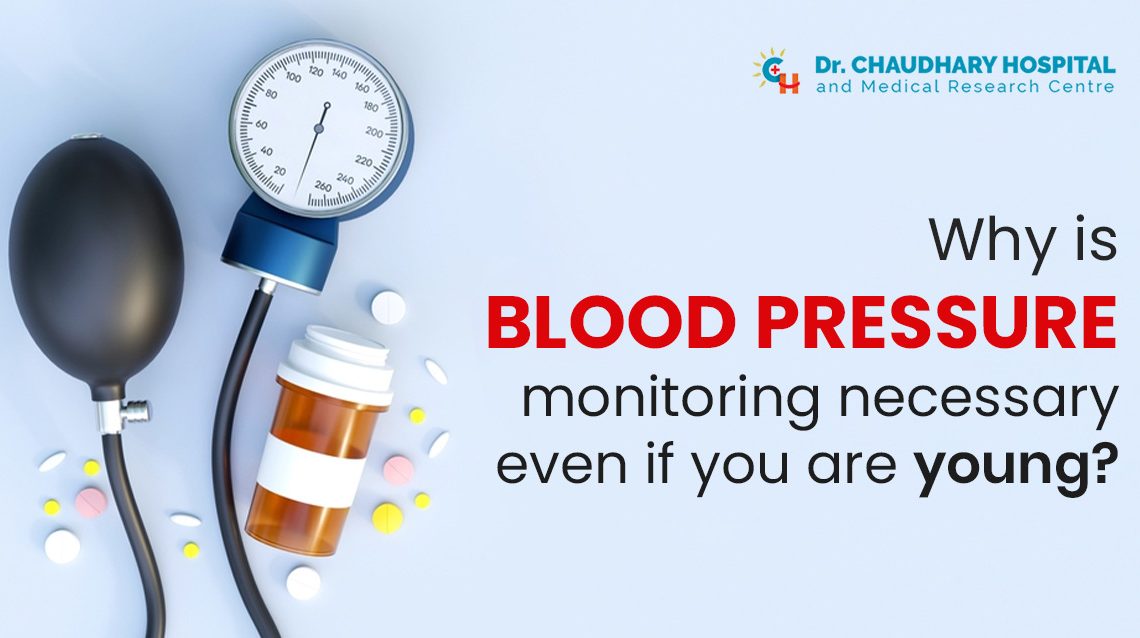Is the problem of high blood pressure really prevalent at a young age? Does it really matter that your doctor is worried about your blood pressure when you’re young and healthy?
You are not too young to be affected by high blood pressure. Even those who appear to be in good health—roughly half of the people over the age of 20 have raised or high blood pressure. Even though high blood pressure doesn’t have any overt symptoms, it shouldn’t be disregarded.
High blood pressure quietly affects your body over time, increasing your risk of developing significant medical disorders, even though it might not feel like it at the moment. This explains why high blood pressure is known as a silent killer.
What does your blood pressure number mean?
The force that blood exerts on artery walls as it is circulated throughout the body is known as blood pressure. Your arteries are engineered to withstand a certain pressure, but there is a limit to what they can handle.
Because of this, blood pressure is measured and divided into groups according to how it impacts our health.
The four types of blood pressure are as follows:
- Less than 120/80 mmHg is considered normal blood pressure.
- 120 to 129/80 mmHg is considered higher-than-average blood pressure
- Stage 1 high blood pressure: 130–139/80–90 mmHg
- Stage 2 hypertension: 140/90 mmHg or greater.
Why is it necessary to monitor blood pressure even at a young age?
Blood pressure monitoring is important for people of all ages, including those who are young, for several reasons:
Early detection of high blood pressure: High blood pressure, also known as hypertension, is a common health issue that can lead to serious health problems such as heart disease, stroke, and kidney disease. Monitoring blood pressure regularly can help detect high blood pressure early and allow for prompt treatment.
Identification of underlying health problems: Abnormal blood pressure readings can indicate underlying health problems, such as heart disease, diabetes, or kidney disease. Regular monitoring can help identify these issues early and take the right measures.
Assessment of lifestyle factors: Blood pressure can be affected by lifestyle factors such as diet, exercise, stress, and alcohol consumption. Regular monitoring can help individuals understand the impact of these factors on their blood pressure and make lifestyle changes to improve their health.
Monitoring the effectiveness of treatment: If an individual is already being treated for high blood pressure, monitoring their blood pressure regularly can help determine the effectiveness of the treatment and adjust it as needed.
In short, regular blood pressure monitoring is important for maintaining good health and preventing long-term health problems, regardless of age.
How does blood pressure affect the health of young people?
High blood pressure, also known as hypertension, can have negative impacts on the health of young individuals. Some of the ways it can affect their health include:
Increased risk of cardiovascular disease: High blood pressure can cause damage to the blood vessels and heart, increasing the risk of heart disease, stroke, and other cardiovascular problems.
Kidney damage: High blood pressure can cause damage to the kidneys, leading to kidney disease and reducing their ability to function properly.
Cognitive decline: High blood pressure has been linked to cognitive decline, including a decline in memory and other cognitive abilities.
Long-term studies have shown that having high blood pressure increases your risk of developing serious health problems later in life, even if you’re only in your twenties or thirties. Uncontrolled high blood pressure is a significant risk factor for middle-aged heart disease, the country’s leading cause of death. Additionally, it raises the chance of kidney disease, stroke, and various eye diseases.
In short, high blood pressure can have a negative impact on the overall health and well-being of young individuals. Regular monitoring and prompt treatment can help prevent or reduce these negative impacts.
How can you lower your blood pressure?
- Lifestyle changes: Making changes to your diet, exercise routine, and stress levels can help lower blood pressure. Eating a diet rich in fruits, vegetables, whole grains, and low-fat dairy products and reducing your intake of salt, saturated fat, and alcohol can help. Regular physical activity, such as 30 minutes of moderate exercise most days of the week, can also help lower blood pressure.
- Weight management: Maintaining a healthy weight through diet and exercise can help lower blood pressure.
- Medications: There are several medications that can be prescribed to help lower blood pressure, including diuretics, ACE inhibitors, calcium channel blockers, and beta-blockers.
- Avoiding tobacco: Tobacco use can raise blood pressure, so quitting smoking or using other tobacco products can help lower it.
- Limiting alcohol consumption: Excessive alcohol consumption can raise blood pressure, so it’s important to limit alcohol consumption to moderate levels.
Conclusion
It’s important to work with your healthcare provider to develop a personalized plan to lower your blood pressure, taking into account your individual needs and health status. Making lifestyle changes, taking medications as prescribed, and monitoring your blood pressure regularly can help you achieve and maintain healthy blood pressure.


